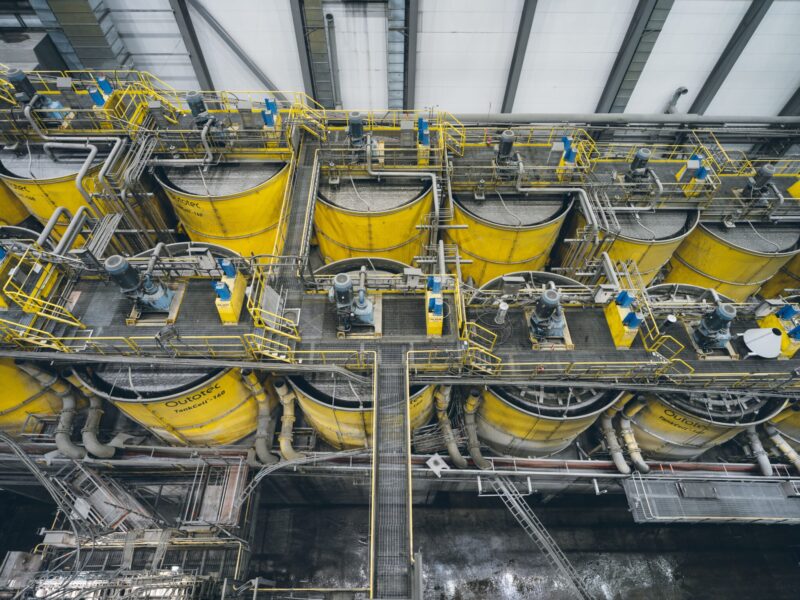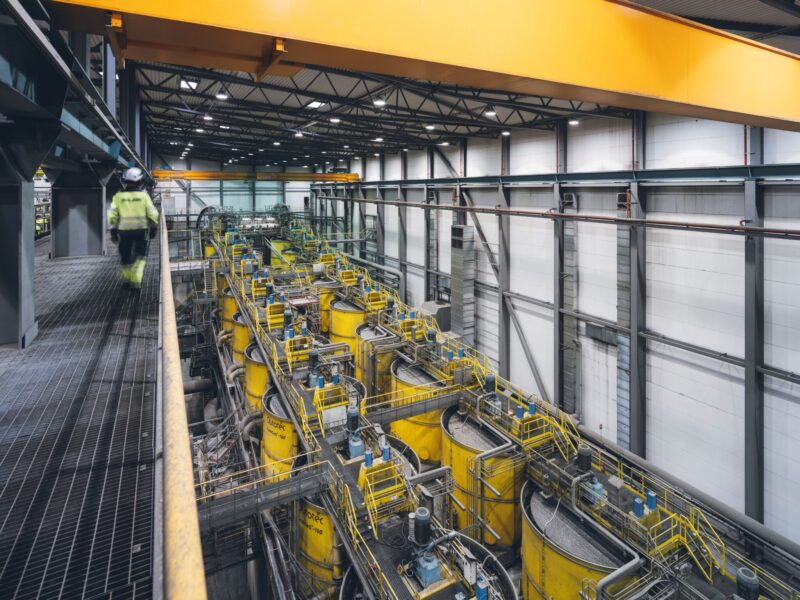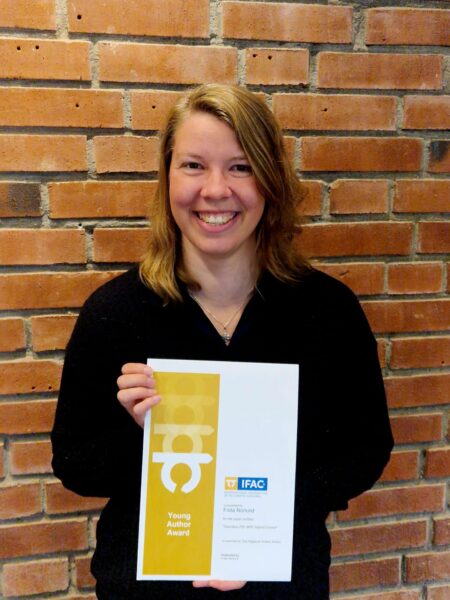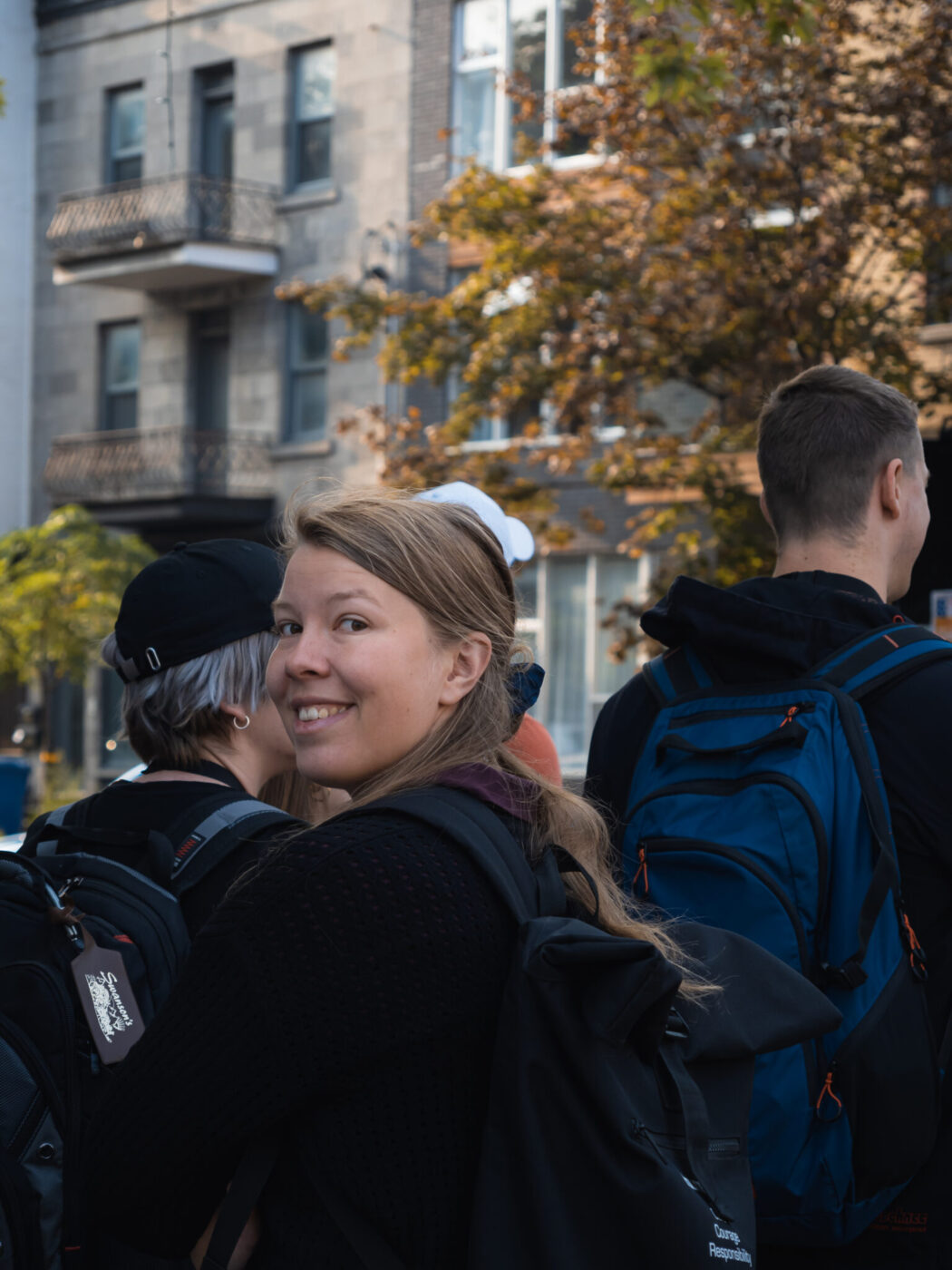Frida Norlund, WASP industrial PhD student at Lund University and the mining company Boliden, has significantly contributed to streamline processes in the mining industry. With a passion for industry and technology, Frida aims to optimize processes to maximize mineral recovery.
Frida, an engineering physics student at Lund University, completed her master’s degree in 2022. Her collaboration with Boliden began during her master’s thesis. Growing up in Skellefteå, near Boliden, Frida was always familiar with the company and its reputation as a good employer.
“The purely academic study was not what I really wanted to do, but during my master thesis, when I had the possibility to work at the intersection of industry and academia, I felt that this was a space I was compelled to work in,” Frida says.
After her masters, Frida and Boliden wanted to continue their collaboration but needed funding, which is where WASP came into the picture. Her supervisor recommended her to apply to an open call at WASP.
“The WASP community adds another layer to my PhD. I have the company, the department at the university – the WASP community is the cherry on top of that. I think that the community is where the most value is added. WASP gives me a platform to connect with people in similar fields at different universities, which I might not have encountered otherwise. It is also a great platform that prepares you to present your research. We are forced to take a step back, evaluate what we have done so far, and present it,” Frida adds.
Frida’s Research: Modelling and control of the flotation process
Frida’s research focuses on modelling and controlling the flotation process at the Aitik concentrator. The production of metals involves three stages: mining, concentration, and smelting. Frida’s work revolves around the concentration stage, where minerals are separated from other raw materials.
The concentration process includes three steps:
- Milling: Ore is ground into fine sand and mixed with water, creating a slurry.
- Flotation: The slurry is pumped into large tanks, where chemical reagents alter the surface properties of the desired minerals to make them water-repellent. Air bubbles are blown from the bottom. These minerals attach to the air bubbles and rise to the surface. If not captured in the first tank, they move to the next in a series of tanks.
- Dewatering: Water is removed from the minerals to facilitate transportation.
Frida’s research aims to optimize the flotation process to maximize mineral recovery. Recovery is the fraction of the incoming minerals recovered in the concentrate.
Frida explains:
“My aim with my research is to operate the flotation process smarter with the information we have. Given the sensors, measurements, and construction, can we run this in a smarter way to achieve better total recovery?”

Photo: Jonas Westling
Level control and disturbance management
Frida’s master thesis produced a model-based level controller, which has been operational for a year at the Aitik plant with an uptime of around 97%.
The model-based level controller controls the level in the tanks. When collecting the minerals, you let the slurry float over the rim of the tanks. If the level is too low, nothing will be collected. If the level is too high, you get a lot of garbage.
The same model-based controller is used for disturbance reaction.
“A concentration plant is a continuous process, so any upstream disturbances, like a mill stop, will affect the flow to flotation, causing level disturbances. Minimizing these disturbances was my focus at the beginning of my PhD studies.” Frida says.
The issue Boliden had was that they had one PI controller* for each cell. When a disturbance occurred, it propagated through the series.
“The new multi-input, multi-output controller looks at the entire process and decides what all cells should do based on all inputs. The tricky part is finding and maintaining models for the model-based controller.” Frida explains.

Photo: Jonas Westling
A hybrid controller – pilot project in spring
Over the past year, much of Frida’s research has focused on developing strategies to softly introduce model-based controllers. Boliden is now preparing for a pilot project at the Aitik plant.
“The product is a hybrid controller that combines the old structure with a model-based smarter structure on top. This way, we retain the old controller while adding some benefits of the model-based one,” Frida explains.
Frida emphasizes the importance of gaining trust within the company to test her research and leverage the operators’ knowledge.
“It’s not only about creating good solutions but also about gaining trust for them to be used. The social aspect is crucial. We are replacing something that already works, so there needs to be interest and motivation from the operators to test the new solution. There is a lot of valuable know-how among the operators that we need and want to use. For me, this means being on-site, answering questions, and addressing the operators’ concerns”, Frida says.
Passion for practical applications drives Frida’s research
Frida’s interest in her research field stems from her passion for industry and technology.
“I have always imagined myself working in some kind of industry, which I enjoy. I have also been interested in technology and how the world works. My research combines these interests. The main driver for me is the question ‘how is this going to be applied?’ The context is very important to me and motivates me. That’s why an industrial PhD suits me well”.
* A PI controller (Proportional-Integral controller) adjusts the output to minimize the error between a desired setpoint and the actual process variable by combining proportional control for quick error reduction and integral control to eliminate steady-state error. It’s widely used for precise control in various applications like temperature regulation and motor speed control.

Frida received the Young Author Award for best conference contribution during the 4th IFAC Conference on Advances in Proportional-Integral-Derivative Control in Almeria, Spain in 2024.
Published: March 27th, 2025
[addtoany]


